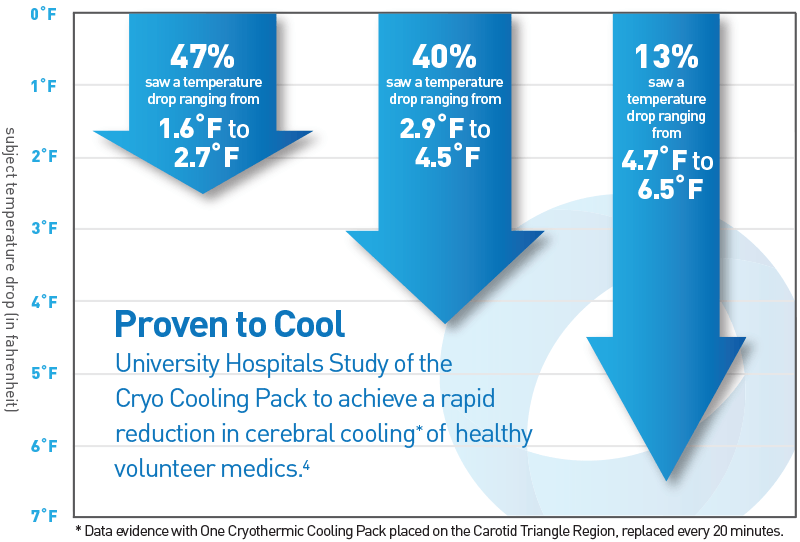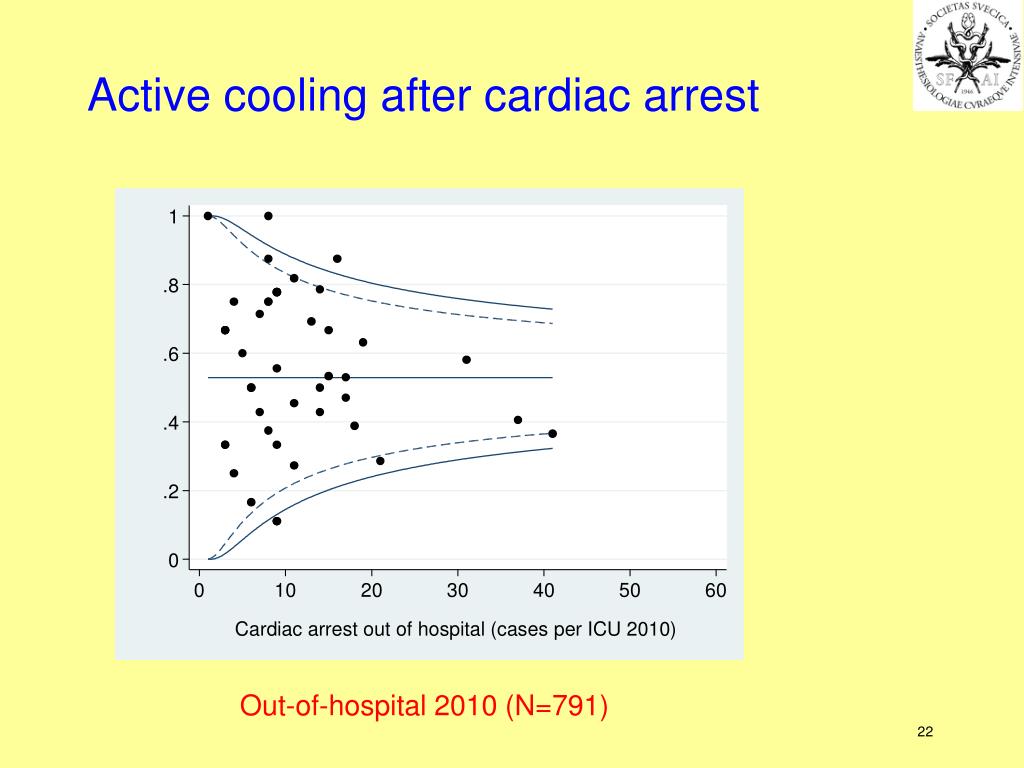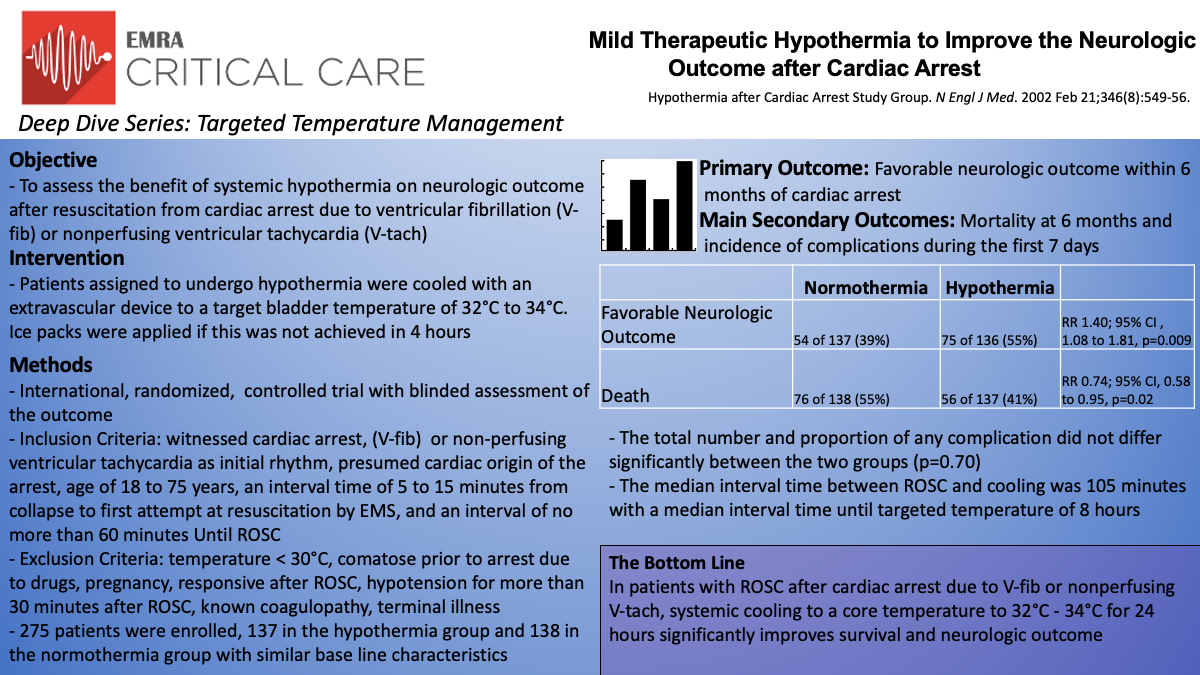Cooling After Cardiac Arrest - Current evidence suggests that conventional cooling methods to induce hypothermia (low body temperature) may. Current guidelines recommend selecting and maintaining a constant target temperature between 32 and 36 °c for those patients in. For patients who awaken and follow commands during targeted temperature management, begin return to normothermia and maintain strict.
Current evidence suggests that conventional cooling methods to induce hypothermia (low body temperature) may. For patients who awaken and follow commands during targeted temperature management, begin return to normothermia and maintain strict. Current guidelines recommend selecting and maintaining a constant target temperature between 32 and 36 °c for those patients in.
Current guidelines recommend selecting and maintaining a constant target temperature between 32 and 36 °c for those patients in. For patients who awaken and follow commands during targeted temperature management, begin return to normothermia and maintain strict. Current evidence suggests that conventional cooling methods to induce hypothermia (low body temperature) may.
PPT Member Nonmember Regional hospital County hospital Local
Current evidence suggests that conventional cooling methods to induce hypothermia (low body temperature) may. Current guidelines recommend selecting and maintaining a constant target temperature between 32 and 36 °c for those patients in. For patients who awaken and follow commands during targeted temperature management, begin return to normothermia and maintain strict.
Quicker cooling after cardiac arrest YouTube
Current guidelines recommend selecting and maintaining a constant target temperature between 32 and 36 °c for those patients in. For patients who awaken and follow commands during targeted temperature management, begin return to normothermia and maintain strict. Current evidence suggests that conventional cooling methods to induce hypothermia (low body temperature) may.
Targeted Temperature Management for Comatose Survivors of Cardiac
Current guidelines recommend selecting and maintaining a constant target temperature between 32 and 36 °c for those patients in. Current evidence suggests that conventional cooling methods to induce hypothermia (low body temperature) may. For patients who awaken and follow commands during targeted temperature management, begin return to normothermia and maintain strict.
Cardiac Arrest and Targeted Temperature Management Tulane University
Current guidelines recommend selecting and maintaining a constant target temperature between 32 and 36 °c for those patients in. For patients who awaken and follow commands during targeted temperature management, begin return to normothermia and maintain strict. Current evidence suggests that conventional cooling methods to induce hypothermia (low body temperature) may.
Temperature Management And Its Role In Cardiac Arrest Patients—a Review
Current guidelines recommend selecting and maintaining a constant target temperature between 32 and 36 °c for those patients in. Current evidence suggests that conventional cooling methods to induce hypothermia (low body temperature) may. For patients who awaken and follow commands during targeted temperature management, begin return to normothermia and maintain strict.
Cooling After Cardiac Arrest Emergency Room Cryothermic Systems
For patients who awaken and follow commands during targeted temperature management, begin return to normothermia and maintain strict. Current evidence suggests that conventional cooling methods to induce hypothermia (low body temperature) may. Current guidelines recommend selecting and maintaining a constant target temperature between 32 and 36 °c for those patients in.
Cooling Strategy After Cardiac Arrest Dealt Another Blow MedPage Today
Current guidelines recommend selecting and maintaining a constant target temperature between 32 and 36 °c for those patients in. For patients who awaken and follow commands during targeted temperature management, begin return to normothermia and maintain strict. Current evidence suggests that conventional cooling methods to induce hypothermia (low body temperature) may.
PPT Cooling after cardiac arrest From evidence to clinical practice
For patients who awaken and follow commands during targeted temperature management, begin return to normothermia and maintain strict. Current evidence suggests that conventional cooling methods to induce hypothermia (low body temperature) may. Current guidelines recommend selecting and maintaining a constant target temperature between 32 and 36 °c for those patients in.
PPT HYPOTHERMIA POST CARDIAC ARREST 2011 PowerPoint Presentation
Current guidelines recommend selecting and maintaining a constant target temperature between 32 and 36 °c for those patients in. For patients who awaken and follow commands during targeted temperature management, begin return to normothermia and maintain strict. Current evidence suggests that conventional cooling methods to induce hypothermia (low body temperature) may.
Targeted Temperature Management Deep Dive Into the Evidence EMRA
Current guidelines recommend selecting and maintaining a constant target temperature between 32 and 36 °c for those patients in. Current evidence suggests that conventional cooling methods to induce hypothermia (low body temperature) may. For patients who awaken and follow commands during targeted temperature management, begin return to normothermia and maintain strict.
For Patients Who Awaken And Follow Commands During Targeted Temperature Management, Begin Return To Normothermia And Maintain Strict.
Current evidence suggests that conventional cooling methods to induce hypothermia (low body temperature) may. Current guidelines recommend selecting and maintaining a constant target temperature between 32 and 36 °c for those patients in.









